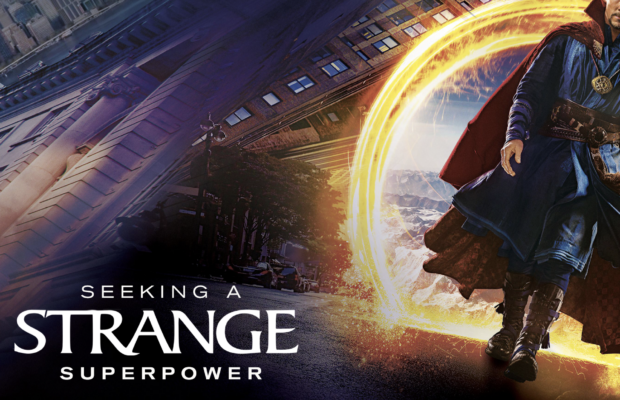Seeking A Strange Superpower

In the universe of superheroes, “super vision” of one kind or another is one of the more common superpowers. Superman immediately comes to mind because of his well-known x-ray vision, not to mention his ability to shoot lasers out of his eyes, but he’s not the only superhero to have some impressive vision-related upgrades.
Spiderman is another well-known superhero with a lesser known “super vision.“ After being bitten by a radioactive spider, Peter Parker developed the ability to see in the dark much better than the rest of us. There is some debate as to whether Hawkeye is technically a superhero because he doesn’t actually possess supernatural powers, but as a result of his super soldier training, he does appear to have gained enhanced vision to go along with his deadly aim with the bow and arrow.
Similarly, Batman does not have supernatural powers, but he does possess impressive technology that gives him a significant edge in many areas, including vision. And Ironman’s technology-aided vision goes well beyond Batman’s. Taking the concept of “super vision” in a completely different direction, Professor X is a powerful telepath with the ability to see into other’s minds.
My favorite superhero is Dr. Strange, a brain surgeon turned Sorcerer Supreme who learned to master the mystical arts. One of the powers possessed by Dr. Strange is the ability to see into the future. In the movie Infinity Wars, while the Avengers were facing a particularly hopeless, universe-threatening situation, Dr. Strange appeared to shut down for a few minutes.
When he came back out of his trance-like state, Iron Man and Spiderman inquired as to what he was up to. Dr. Strange explained that he went forward in time to view alternate futures to see all the possible outcomes of the coming conflict. When asked how many futures he viewed, he responded 14,000,605. When asked about how many futures resulted in a victory for the Avengers, he responded…one.
Although the power to see into the future may not be one of the coolest or most exciting superpowers one could have, it would be most helpful to estate planning and elder law attorneys like me. Without realizing it, that’s exactly what many families ask me to do—recommend the best planning options for a future that is anything but certain. Countless times I have told the families I meet with, “If we had a crystal ball, I could tell you exactly which way to go.” But I’m not Dr. Strange, and we don’t have a crystal ball, so we must do the best we can with the information we have available to us.
Even without the ability to see into the future, one thing is certain. None of us will live forever. When a person dies with assets in his or her name with no plan in place, the estate must go to probate court. That puts probate-avoidance at the top of our list of priorities as estate planning attorneys. But exactly how should we structure that probate-avoiding plan? That’s where the ability to see into the future would come in handy. Yet even without that superpower, experienced estate planning attorneys can do better than just give it a shot and hope for the best.
An experienced estate planning attorney will be aware of common pitfalls in typical estate plans and will know how to avoid them. They will inquire about any specific issues your family members may have and will structure a plan to address those issues. They will account for the likelihood that you may need expensive long-term care in the future and, when possible, will structure your plan to prepare for that undesirable contingency.
An experienced estate planning attorney may not be able to tell you exactly what the future holds for you and your family members, but they’ll be able to plan for multiple contingencies in the best available way to make your desired outcome as likely as possible.
Estate and long-term care planning would be easy if we could see into the future. But having a thorough, well-considered plan doesn’t require supernatural “super vision.” It just requires knowledge, experience, and the patience to talk things through. ν






0 comments